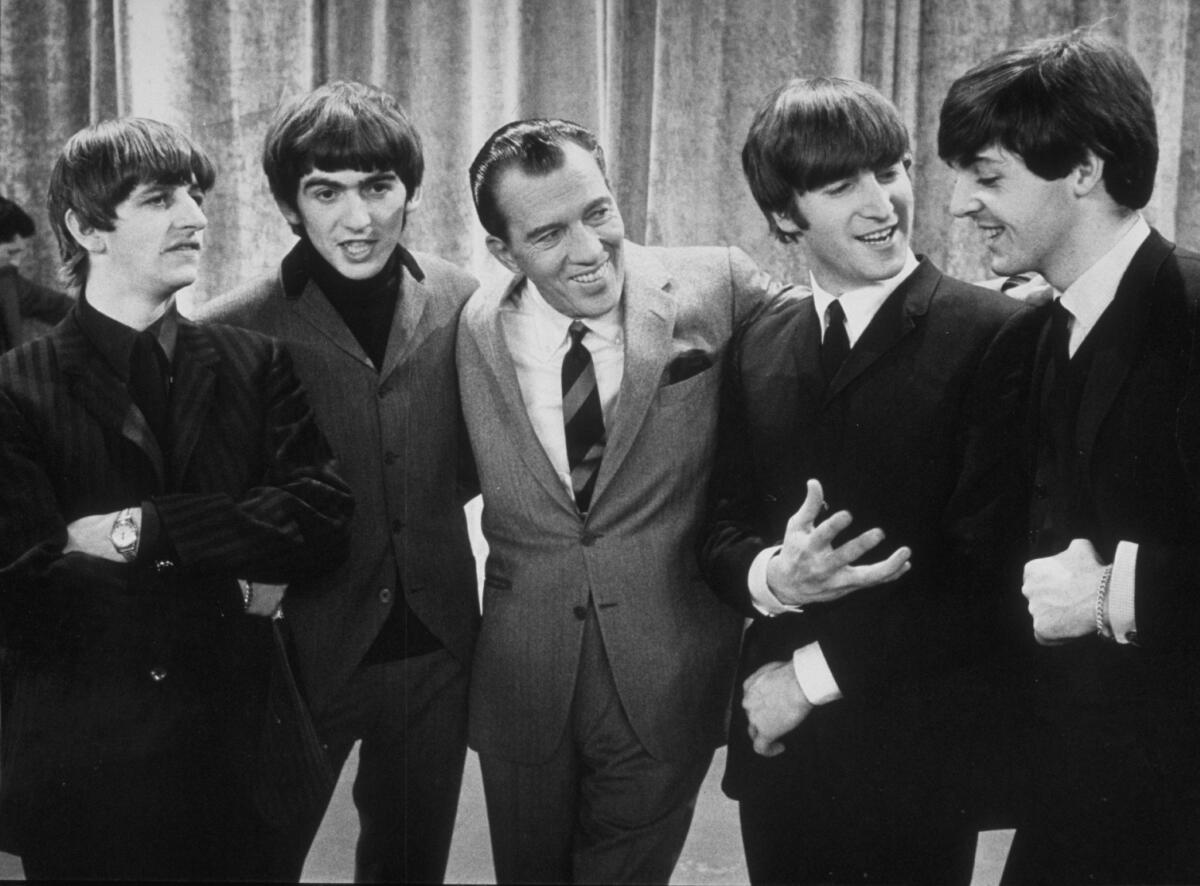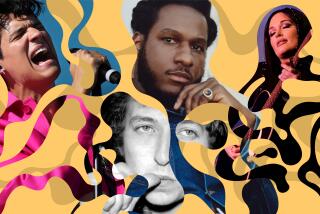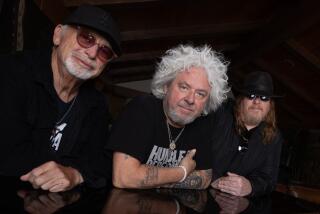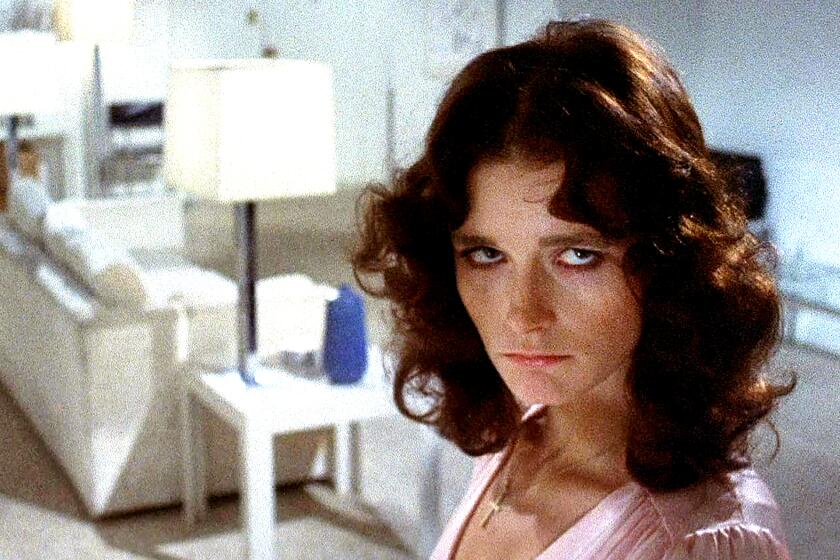Meet the Beatles -- in books

On Feb.. 7, 1964 -- 50 years ago today -- John Lennon, Paul McCartney, George Harrison and Ringo Starr arrived in the United States and in so doing turned Beatlemania worldwide. “It is now 6:30 a.m., Beatle time,” enthused a WMCA radio DJ. “They left London thirty minutes ago. They’re out over the Atlantic Ocean, headed for New York. The temperature is 32 Beatle degrees.”
That little piece of hype comes from Philip Norman’s 1981 group biography “Shout!: The Beatles in Their Generation,” which remains one of the two or three best books I’ve ever read about the band. It’s telling that the New York trip takes place well into Norman’s account, since by February 1964, the Beatles had been around, in one form or another, for six-and-a-half years.
Much has been made of their reception in the U.S. as a reaction, or a counterbalance, to the country’s grief over the assassination of President Kennedy 11 weeks before. There’s some truth to that, as Norman acknowledges, but none of it would have happened without the efforts of a variety of promoters, from Ed Sullivan, who would host them on his CBS TV variety show two days after their arrival, to Nicky Byrne, “a merchandiser of Beatles goods,” who was convinced the Beatles’ record company, Capitol Records, had dropped the ball.
PHOTOS: The intimate unseen Beatles photographs of Bill Eppridge
“For all Capitol and CBS cared,” Byrne says in “Shout!,” “they were just going to walk off the plane and go to their hotel. Nobody would have even known they were in America.” To make sure that didn’t happen, Byrne teamed up with a T-shirt manufacturer and two local radio stations (one was WMCA). The result? “Every fifteen minutes, “ he recalled, “the same announcement was made over the air. A free T-shirt for every kid who went out to the airport to meet the Beatles.”
This is why I like to read history -- and “Shout!” is certainly a history -- because it puts the lie to the myth of inevitability. Yes, the Beatles became the biggest thing to hit these shores since ... well, the original British invasion. But such an outcome was anything but assured.
On the flight from London, Harrison, the only member of the band to have visited the U.S. (his sister lived in St. Louis), wondered: “They’ve got everything over there. ... What do they want us for?” The answer is complicated, inexplicable even -- a mix of release after the Kennedy tragedy and the explosion of a nascent youth movement that had its roots in post-World War II teen culture and was further stirred when Elvis Presley shook his hips on national TV.
The Beatles neatly fit both sets of expectations: charming, cheeky (“What do you think of the campaign in Detroit to stamp out the Beatles?” they were asked at the newly renamed John F. Kennedy International Airport, to which McCartney replied, “We’ve got a campaign of our own ... to stamp out Detroit.”) and also rebellious, safe enough for the grown-ups and dangerous enough for the kids. No other group has ever been able to walk that line so successfully.
Then, of course, there was that music, which I continue to adore. By 1964, they were already seasoned professionals, having cut their teeth not just on the British variety-show circuit but in the clubs of Hamburg’s Reeperbahn. They had two albums out in Britain and, in terms of timing, were more than halfway through the comet-like trajectory of their career, which effectively ended with the completion of “Abbey Road,” five-and-a-half years after their arrival in New York.
That’s another telling number, suggesting both the revelations and the limitations of chronology. It’s especially true of the Beatles, who seem to exist in some sense out of time, despite the rigors of mortality.
Cirque de Soleil, McCartney and Starr on the Grammys, the airing on Sunday night of “The Night That Changed America: A Grammy Salute To The Beatles,” keyed to the anniversary of their first Ed Sullivan performance -- they are “the act you’ve known for all these years,” indeed. For a band that hasn’t played together in more than four decades, they are remarkably au courant.
Partly, as Peter Doggett observes in “You Never Give Me Your Money: The Beatles After the Breakup,” that’s the result of legacy tending, which became their great project post-1970. By his account, they never truly broke up, if only because Apple, their record-label-cum-media-company, bound them together in a series of legal and contractual battles that lasted well into the 1990s.
Doggett’s portrait of the band -- as businessmen, tied to each other by a partnership they’d entered in their 20s -- is fascinating because it addresses them not as idols but as human beings. The tensions are summed up most succinctly by McCartney, who says of his decision to leave the group: “One night I’d been asleep and awoke and couldn’t lift my head off the pillow. My head was down in the pillow and I thought, Jesus, if I don’t do this, I’ll suffocate.”
What McCartney’s describing is, in every way that matters, the flip side of that heady arrival in New York, with its declaration of possibility. It’s also a vivid glimpse from the inside at the price of success, of celebrity.
This is the part of the story no one wants to hear, and yet it’s the part that, finally, resonates. Or, as Lennon observes, looking back to 1964 and its aftermath in “Lennon Remembers” (which gathers his 1970 Rolling Stone interview with Jann Wenner): “We were just a band that made it very, very big, that’s all.”
ALSO:
Lou Reed’s rock ‘n’ roll poetry
The David Cronenberg-Kafka connection
100 years of William S. Burroughs: The nakedness of words
More to Read
Sign up for our Book Club newsletter
Get the latest news, events and more from the Los Angeles Times Book Club, and help us get L.A. reading and talking.
You may occasionally receive promotional content from the Los Angeles Times.










